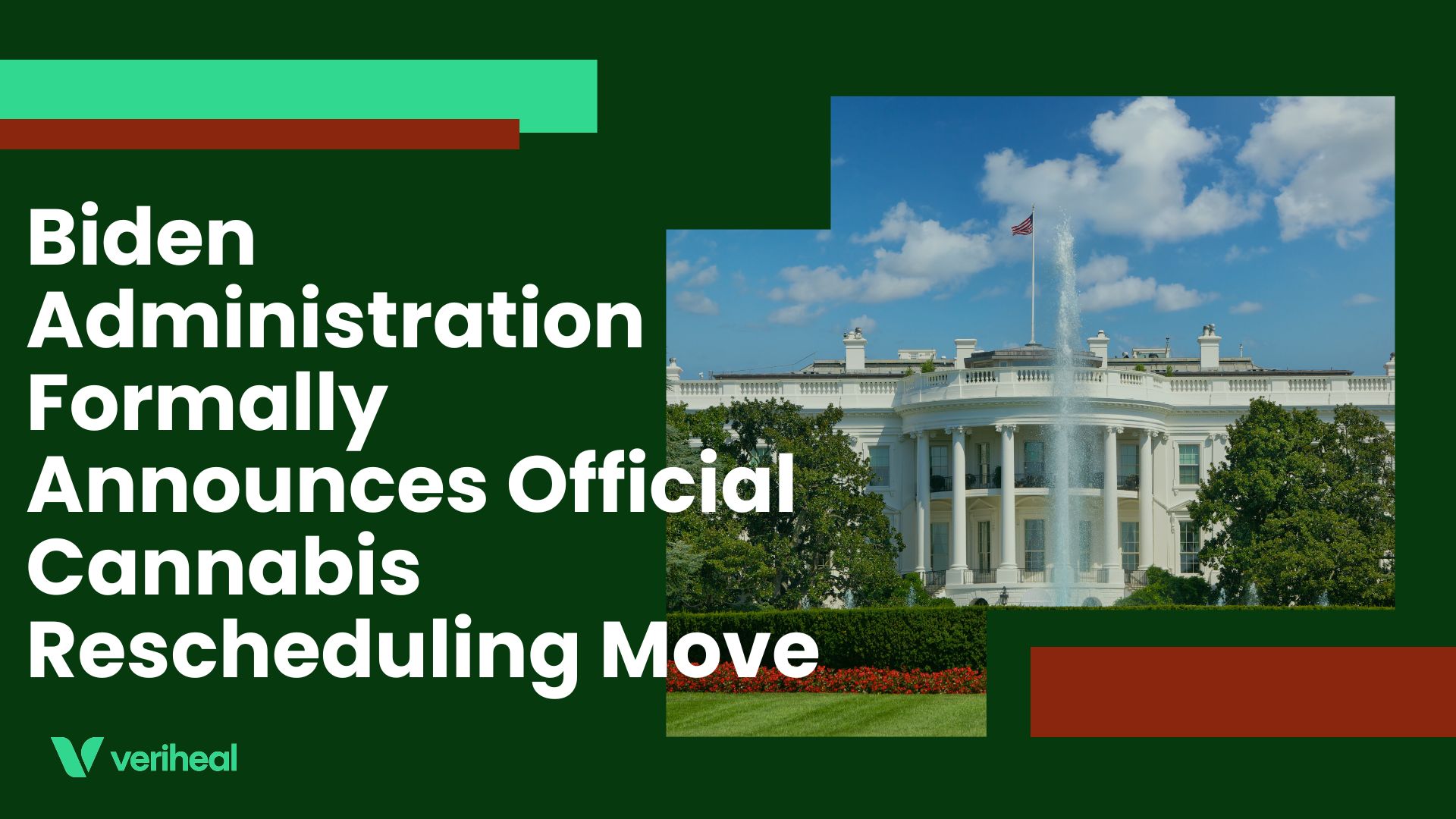In less than a decade, cannabis has exploded across the United States. Around two-thirds of the country now has access to some form of medicinal or recreational marijuana, and millions of Americans are turning to it for relief from a wide variety of mental and physical ailments. We are truly undergoing a cannabis renaissance, and it’s been a wonderful thing to witness. However, even though dozens of states have embraced cannabis, federal legislation has been slow to catch up–until now.
After years of cajoling, pressure from activists, and calls for reform, the Drug Enforcement Administration (DEA) finally revealed two weeks ago that it would support the reclassification of marijuana from a Schedule I to a Schedule III drug. Under Schedule I status, it’s considered to have no medical benefits and to be a more dangerous drug than fentanyl or methamphetamines–something that has been repeatedly proven to be untrue. The new classification, Schedule III, will allow cannabis to be seen as a substance with medical benefits and uses.
Now, in a truly historic and monumental move, President Biden and his administration have announced their formal support of cannabis rescheduling. Rescheduling cannabis has been on Biden’s radar for some time now, as he promised during his campaign to have it moved to Schedule II. He has spoken on the topic several times throughout his presidency as well as granting pardons to thousands of citizens with marijuana offenses on their records.
“This is monumental,” Biden said in a video posted to his Twitter account. “It’s an important move towards reversing long-standing inequities. … Far too many lives have been upended because of a failed approach to marijuana, and I’m committed to righting those wrongs. You have my word on it.”
What Does Rescheduling Mean for Cannabis?
Although cannabis will still be a federally illegal substance, the ramifications of this move will be far-reaching and will be felt by millions of people across the country.
One of the most significant ways rescheduling will impact cannabis is by making it significantly easier for scientists to conduct research on the medicinal benefits of marijuana. Federal scientists, in particular, will be able to access funding and conduct studies on cannabis for the first time since 1971 when the Controlled Substances Act was first put into place. Since cannabis will now be recognized as having medicinal benefits, it could also make it easier for pharmaceutical companies to use cannabinoids in their own research and medicines.
Other major effects include changes to taxes marijuana businesses are required to pay, which will make running these companies less burdensome and more accessible.
Why You Should Get Your Medical Marijuana Card
Veriheal has satisfied millions of patients nationwide by giving them access to these benefits
- Larger purchase limits
- Peace of mind
- Enhanced legal protection
- Access to higher potency strains
- Save up to 25% on cannabis purchases
- Skip the line at the dispensary
Although rescheduling does not automatically mean that people with marijuana offenses will be pardoned, it could make it easier for these pardons to happen in the future. It may also lead to less severe punishments for people who are charged with federal marijuana crimes.
The Next Steps
Now that the government and the DEA are on board with rescheduling, what happens next?
First, the Justice Department must publish its proposal regarding rescheduling. After that, there will be a 60-day period for the public to comment on the move. Due to the current widespread report for cannabis (more than 70% of Americans support legalization), many of these comments are expected to be positive. However, some activist groups may still express concerns over choosing to reschedule instead of legalizing marijuana, and anti-cannabis prohibitionist groups will likely fight back against this move via litigation. However, after the 60 days are up, the DEA can officially move forward with rescheduling.
Some Democratic legislators are still pushing for the full legalization of cannabis, but this is not expected to go anywhere fast with a divided Congress.
There may be some bumps in the road while the DEA and government figure out how to move forward. For example, the DEA will be in charge of regulating the country’s 15,000 cannabis dispensaries, which will have to register like traditional pharmacies. This process could become burdensome for both the DEA and the dispensaries.
Fortunately, cannabis rescheduling is overall a positive move that will change the cannabis landscape in the United States forever. It could lead to criminal justice reform, equal housing and employment opportunities, record expungement, lower taxes, and more. And the work isn’t over–more changes are expected to come in the future.
“While this rescheduling announcement is a historic step forward, I remain strongly committed to continuing to work on legislation like the SAFER Banking Act as well as the Cannabis Administration and Opportunity Act, which federally deschedules cannabis by removing it from the Controlled Substances Act,” said Senate Majority Leader Sen. Chuck Schumer of New York in a statement. “Congress must do everything we can to end the federal prohibition on cannabis and address longstanding harms caused by the War on Drugs.”
Author, Share & Comments








